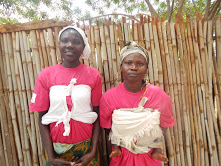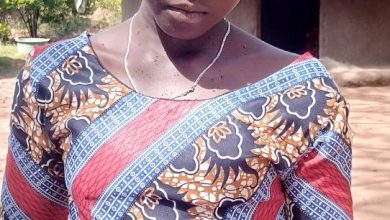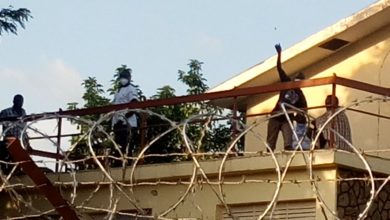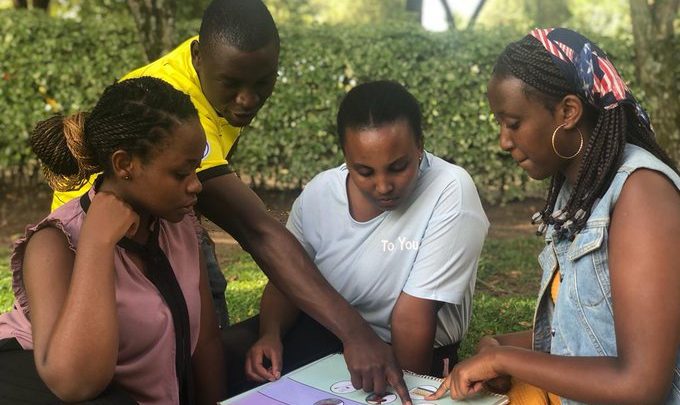
EducationHealth
RHRN –II coalition Tackling the Taboo Topic of Teen Pregnancy in Uganda
Through games and talks, male and female activists and counsellors visit local schools to teach young people about their sexuality and to address their reproductive health issues. They also debunk falsehoods by asking intriguing questions like “Can using a condom make a man weak?” or “If a girl closes her eyes during sex will it prevent pregnancy?”
Judith Amusugut
For Rachael Mbonabana and Chelangat Ruth, tackling teen pregnancy is a community affair in Kabalore and Kween districts, respectively. Together, the two trained youth health advocates comb through villages offering support to young mothers and other youth in Uganda’s rural Sebei and Rwenzori regions.
“Teenage pregnancy programs used to focus only on girls, with the main themes being: what not to do or punishment, with no support,” Chelangat says. “Men continue about their lives as if nothing had happened, many of them marrying off young girls, because they have all the power and decision-making and don’t ask women what they think or want.”
When she first trained as a youth advocate in Kween district, she instantly felt at home and knew it was what she wanted to do, to change people’s perceptions. But she understood if she wanted to have any kind of impact she needed to work in a less developed, rural region like Kwosir sub county in Kween district.
“Kwosir and the surrounding rural areas have a high teen age pregnancy rate that is generally ignored,” says Ronnie Limo, a 21-year-old University student. “The main message is not to have sex, yet young people do. We focus on teens in order to assist them make their own decisions and to help young people grow into responsible adults.”
Rachael Mbonabana, a youthful agriculture entrepreneur in Kichwamba sub county of Kabalore district quickly decided she wanted to stay for a few years to help fellow young people to access sexual reproductive health and rights information.
” There is a great deal of stigma. Your family may turn you down. You may get expelled from school. The boy may abandon you. You’re effectively on your own,” according to Bonabana, several girls have been victims of adolescent pregnancy, while boys have stopped studying after impregnating young girls.
“To set up sensitize young people in group is a dream opportunity,” Hassan Sebugwaawo says. “I aim to help young people set up some sustainable business enterprises while providing information about sexual reproductive health and rights (SRHR) among young people. It’s my duty as a Right Here, Right Now (RHRN-II) coalition officer in the Rwenzori region. I’m not going to leave it half-finished.”
RHRN-II, a young people’s project that aims to enlighten them, has provided support to young people in 28 groups located in Sebei and Rwenzori regions to help make that dream a reality. Communication skills, SRHR information, and gender justice information are enabling young people in rural areas to understand the challenges of early sex, marriages, and teen pregnancy, as well as conduct research on the needs of teen age mothers such as access to justice, pregnancy prevention, and sexually transmitted diseases.
“The RHRN-II project has helped us access social media communication skills, understand our body changes, respect people gender and sexuality here in Kabalore,” said Brian Murungi, a beneficiary from Mukungwe village and member of Youth of Destiny group. “The RHRN-II coalition programs are demonstrating results through communication, training, teaching and business innovation among us young people. These good experiences can be replicated and scaled up systematically.”
As one walks up about villages of Kaserem, Kwosir and Ngenge in Sebei region and Kichwamba sub county in Kabalore district, you’ll see signs for the RHRN-II inviting youth (under 24 years of age) to “Come have a chat!” The program provides training and counselling services for teens and young adults seeking sexual and reproductive health advice on issues ranging from relationships to family planning to sexually transmitted infections and HIV.
“There is a thirst for information that’s not being met,” Samuel Musani a project Officer in Sebei region says. “And this is where we hope the RHRN-II mobilization and awareness programs fit.”
RHRN-II coalition is also using radio announcements in indigenous languages and English to reach local teens and the community at large, but they want to begin giving information in their indigenous languages of their regions.
Through games and talks, male and female activists and counsellors visit local schools to teach young people about their sexuality and to address their reproductive health issues. They also debunk falsehoods by asking intriguing questions like “Can using a condom make a man weak?” or “If a girl closes her eyes during sex will it prevent pregnancy?”
“Young people can talk to their peers – the communication gap is not there,” says Aisha Namugenyi, the RHRN-II Youth Country Coordinator. “I believe it is time for young people to be empowered and to discover their own answers rather than being lectured. They can be empowered via prevention, advice, and counseling.”
Dinah Kyomuhendo, 20, has been an advocate for 15 months, and she agrees that teenagers feel more comfortable talking about sexual issues that they may be reluctant to address with their parents or another young person. She says that many boys, who make up about a quarter of the RHRN-II’s clientele in Kabalaore district alone, are prepared to use a condom but have difficulty dealing with the social embarrassment attached to it.
“There is still stigma attached to buying a condom,” Kyomuhemdo says. “young people feel shy immediately everybody in the community knows they are prepared to have sex.”
Sex is not always a straightforward matter in Uganda, as in some other countries around the world, especially for teenagers. Joseph Cheptegei, a Community Development Officer in Kween district, says that most sexually active girls tell him during counseling sessions that their boyfriends don’t enjoy sex with condoms, so they don’t use them. Others may feel pressured to have sex after accepting gifts from their perspective suitors.
“People are saying they don’t have the money to go to school,” he says. “That leads them to engage in relationships with boys to provide for their needs. In turn, they demand sex from the girls.”
Since abortion is illegal in Uganda, girls may resort to desperate measures such as swallowing glass or inserting metal objects or sticks inside themselves to terminate an unwanted pregnancy. Worldwide, girls aged 15 -19 account for one in four unsafe abortions an estimated 5 million each year.
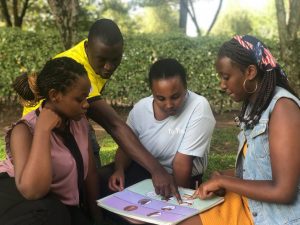
“There’s a lot of stigma,” Cheptegei says. “Your family may turn you down. You may get expelled from school. The boy may abandon you. You are effectively on your own and are regarded as a burden by the rest of your family, who may expect you to care for yourself and your child.”
RHRN-II coalition envisions helping teen mothers access SRHR information and gender justice in Uganda.

